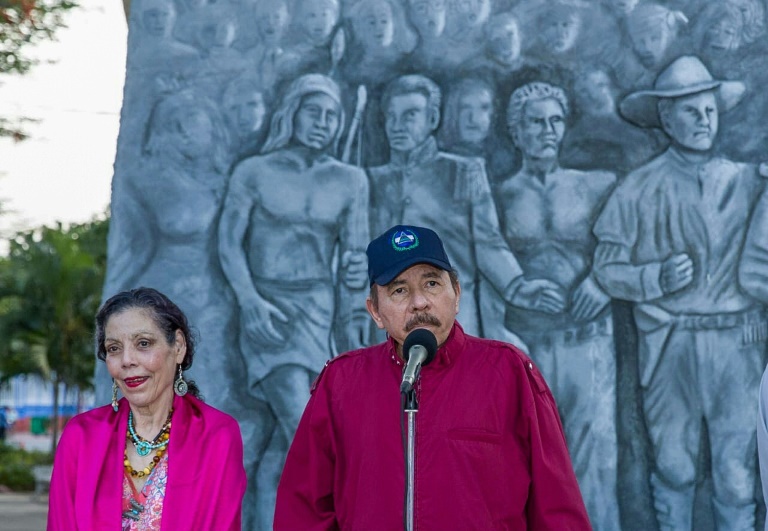Nicaragua’s long-term leader Daniel Ortega, under fire internationally over the detention of opposition figures ahead of November elections, will seek a fourth consecutive presidential term, a senior ally said Monday.
Ortega, 75, will be the ruling Sandinista National Liberation Front’s candidate for the November 7 presidential vote, Gustavo Porras, the speaker of Nicaragua’s parliament, told public television.
He predicted victory was “indisputable.”
Six opposition presidential hopefuls among 26 people detained by Ortega’s government since last month, will not be allowed to run in the election.
In a clampdown that began on June 2, Ortega’s government has rounded up political rivals in a series of house raids and nighttime arrests on charges of threatening Nicaragua’s “sovereignty.”
The charges are rooted in a law initiated by Ortega and approved by parliament in December, widely criticized as a means of freezing out challengers and silencing opponents ahead of the election.
The law bars “those who ask for, celebrate and applaud the imposition of sanctions against the Nicaraguan state” from seeking public office.
The first person to be detained was Cristiana Chamorro, widely seen as the favorite to beat Ortega but now under house arrest on government claims of money laundering.
Her mother, Violeta Barrios de Chamorro, unseated Ortega in 1990 to become Latin America’s first elected female president.
– ‘No allies left’ –
Ortega, who was widely expected to seek a renewal of his mandate, has not yet made an announcement himself.
Presidential candidates will be able to register from July 28 to August 2.
Ortega says the people rounded up by his forces are “criminals” seeking to overthrow him with US backing.
But the clampdown has drawn international condemnation and fresh sanctions, with the United States branding the long-term leader a “dictator.”
The European Union has said it was “inconceivable” the November elections “will be anything remotely approaching a democratic competition.”
A firebrand Marxist in his younger days, Ortega and his Sandinistas toppled a corrupt autocratic regime to popular applause and seized control of the country in 1979.
He was elected president in 1984 and ruled until 1990 when he was beaten by Chamorro, then returned to power in 2007. He has won two successive reelections.
His vice president since 2017 is his wife, Rosario Murillo.
Ortega has been accused of increasing authoritarianism by the opposition and international community, especially following the brutal repression of anti-government demonstrations in 2018 which left more than 300 dead and thousands in exile, according to rights bodies.
In May this year, Nicaragua’s parliament appointed a majority of governing party-aligned magistrates to the election body that will oversee the November election.
Luis Carrion, a former Ortega ally and cabinet minister, said the president’s actions revealed the “weakness” of his government, “without internal allies, its own base deteriorating, internationally isolated and rejected by the people.”
Carrion said he has left Nicaragua to avoid possible arrest himself.
Moises Hassan, another former comrade of the president, told AFP there has been a “generalized rejection” of Ortega, who “has no allies left” even among Latin America’s other leftist former revolutionaries — besides Cuba and Venezuela, who remain loyal.










